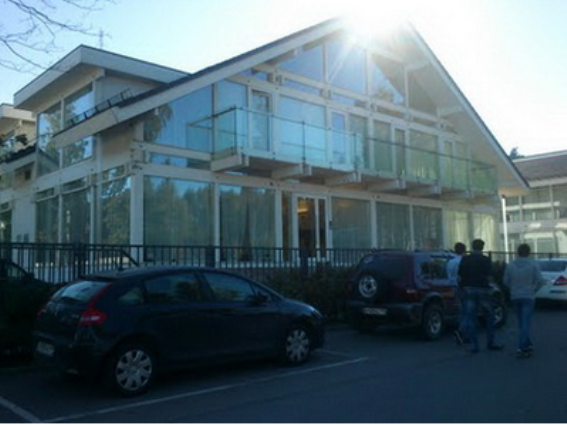When I read publications on Russian Internet I often pay more attention to readers’ comments then to articles themselves. I assume that the comments at least partially reflective of the moods of the Russian people. Very often these comments are shocking.
A new Russian film comedy “The kitchen in Paris”, based on a popular TV sitcom was just released in Russia. Judging by reviews it is a funny light comedy about a Russian cook who is trying to open a restaurant in Paris.

A prominent film critic Anton Dolin wrote a review of the film. He was impressed by how much Russia has changed in the period from the start of the production of the film to the moment of it’s release.
There is an atmosphere of kindness, international friendship in the film. Russia is perceived by the filmmakers as a legitimate part of Europe. Anton Dolin regrets that the atmosphere in the today’s Russia which is full of hatred and rejection of all European and Western values. The main tone of Dolin’s article is nostalgic pity for “Europe lost by Russians”.
The review was published at the extremely non-political site “Afisha”, something similar to “Timeout”.
Seventy-nine readers commented on the review, a record amount for this site. Here is a very typical one:
Olga Filonovich
“Yuck! Another acolyte of Europe! It is disgusting to read! How many of Russian writers are corrupted people, sold out to the West! I fly to Europe on business 5 times a year. I believe, that there is no perfect life over there. People over there are usually very lonely, even inside of their families. They have no property, everything they have is bought on credit. And this inflated idyll with gays and lesbians! By the way, a lot of Europeans respect Putin.
“Those democrats like this critic are unleashed today at every corner; there is no plague on them! They are trying to stuff us with their demagoguery. They try to convince us on the Internet that we are poor, downtrodden, brainwashed, ugly, uneducated animals. I guess this time we will need to reach with our military not only to Berlin but also to the White House .”
Anton Dolin asked his friends on Internet to reflect on the comments to his article. In his opinion the comments were proof that he had described today Russian situation correctly.
Unexpectedly some of his friends tried to refute his believe. They think that most of pro–Putin comments on the Russian Internet are written not by real readers, but by the so called “trolls”. In this case they may be employees of the special governmental organizations, established in order to fight democratic Internet. It’s a part of the state propaganda machine.
By strange coincidence at the same day, when I’ve read the discussions of Dolin’s friend I found at the web site of the very popular democratic newspaper “Novaia gazeta” an article entitle “Where the trolls live”.
The correspondents of the paper found an ad published in the Internet:
“Internet operators are wanted! Working in a posh office in Olgino!! (an elite St. Petersburg suburb. S. Ts.), payment 25,960 rubles ($865) per month. (In November 2013 the average income per capita in Russia was 21,069 rubles S.Ts.) The job: posting comments on relevant websites, writing thematic posts, blogs, social networks. WEEKLY PAYMENTS AND FREE MEALS! “
The correspondents visited the “posh office”.

They started the process of enlistment into the company’s staff and learned that they would be obligated to write 100 comments a day. To the question what would be subjects of the future comments they’ve got an answer: “There’ll be orders from above. We still do not know. There are too many events in the political and business area. We will perform whatever will be ordered”.
The examples of the comments they should write were shown to the correspondents. These examples looked very much like the Olga Filonovich comment, which I quoted above.
Funny, but I still believe that Olga’s comment was authentic. Propaganda works!

